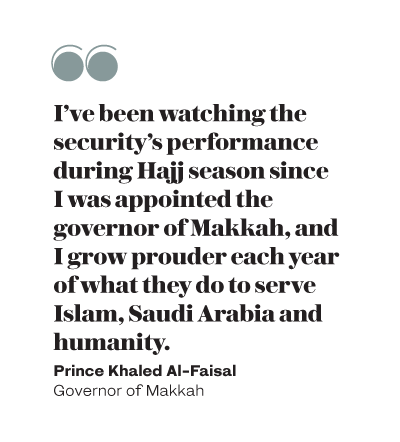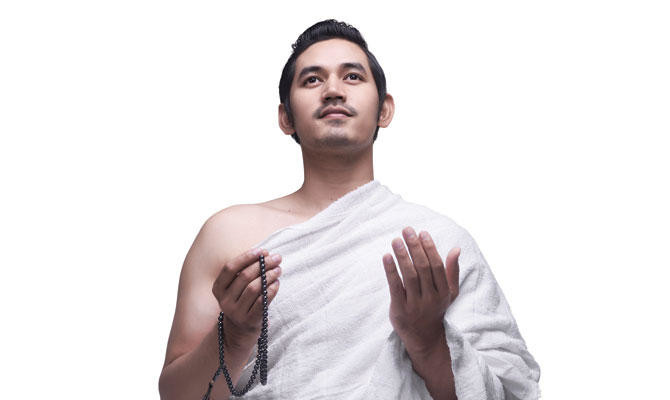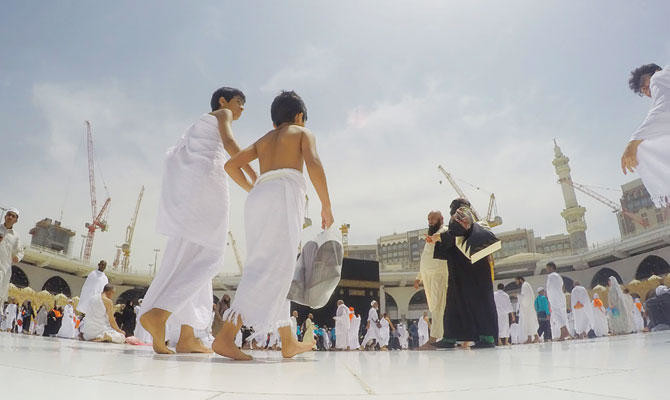RIYADH: Hajj is an epic experience that can truly change a person through a spiritual cleansing that is profound. Islam came to eliminate racism and tribalism, and in due process slavery. Hajj reflects the true face of Islam in unity, as all Muslims, regardless of their nationality or status, wear the same cloth before Allah.
This is reflected in the extremely simple clothing: Men wear two white cloths that cover their bodies, while women wear a long robe with and headscarf. (The face should be bare when performing Hajj.)
One of the aspects of Hajj is to cleanse our souls from all earthly possessions and luxuries that cling to one’s heart, reminding us that we shall return to the ground from which we were created.
A vast sea of people can be witnessed walking in unison to perform the rituals. It is a place free of discrimination and filled with appreciation.
In a small spot in Makkah, close to 3 million stand in prayer before Allah, to repent from sins and gather blessings from the Almighty. At that moment when they stand together atop Arafat Mountain, it really does feel like it’s a small world after all.
Togetherness, humility
Many have described their Hajj experience as life-changing. It is not easy to perform, but after completing it, it leaves you spiritually charged and more actively aware.
Hussam bin Ahmed, an organizer for one of the Hajj campaigns, speaks about how there’s a sense of togetherness and humility that unites pilgrims. “The company I work with serves 150 pilgrims yearly, and this is an honor and responsibility I take seriously,” he told Arab News.
“Every year we receive a large number of Hajj pilgrims, some quite famous, and every year, they surprise us with their humbleness and servitude. Many people perform Hajj (to get) spiritually close to Allah, but also to serve the pilgrims. Hajj is a time that shows the true face of Islam, where people come together and help one another. Pilgrims stand hand in hand and help one another in brotherly affection.”
“It’s beautiful when you see pilgrims from all over the world, who don’t even speak the same language, communicate through kindness. All during Hajj we see the true face of Islam, the higher purpose of us in life in its humanitarian aspect,” said Bin Ahmed.
In Hajj, the societal image of Islam is reflected in the inherited traditions since the time of Prophet Ibrahim. All forms of racism dissolved in those rituals.
The claims and the rituals were limited to words, deeds and even intentions. The chiefs did not wear clothing that distinguished them from their soldiers. Performing Hajj is a religious and moral message to the world.
Taking time to reflect on Hajj, Sheikh Adel Al-Kalbani told Arab News: “The millions of pilgrims send a message to the whole world in their discipline and in the ethics of their gathering throughout the days and nights.
 A small spot that attracts millions of all the nationalities of the world. Not only that, but greetings of peace are said to one another, and if one is need, then others are hastily at their aid.”
A small spot that attracts millions of all the nationalities of the world. Not only that, but greetings of peace are said to one another, and if one is need, then others are hastily at their aid.”
He continued, saying: “These huge masses that have good intentions and are determined to repent: It is the greater good of communities, when millions travel each year for the greatest intent, which is ‘self-forgiveness.’ The forgiveness of the past and reconciliation in the future.”
“Hajj season is the greatest channel Muslims have to raise awareness and show the tolerance of Islam and show a different picture than that which is shown of extremism. After Hajj, Muslims from all countries in the world return to their homes and are determined to resume a new life of coexistence with others.”
Moreover, Al-Kalbani says: “The Prophet (peace and blessings of Allah be upon him) said: ‘Whoever performs Hajj and does not commit sin, nor disputes unjustly (during Hajj), then he returns from Hajj as pure and free from sins as on the day on which his mother gave birth to him’.”
In the service of Islam
The Hajj security officers are quite exceptional, going above and beyond to make sure that pilgrims from all over the world are safe and comfortable, putting them and their needs before their own. During the 11th Hajj Is Worship and Civilized Behavior campaign, Prince Khaled Al-Faisal said: “I’ve been watching the security’s performance during Hajj season since I was appointed the governor of Makkah, and I grow prouder each year of what they do to serve Islam, Saudi Arabia and humanity.”
Performing Hajj reminds us of our humanitarian duties toward one another: That we are all one. After completing this spiritual cleansing, pilgrims continue this belief throughout their lives, as it has been engrained in them for the better.
































